Our Experts
Our Experts
Learn about the diverse experience that makes ERGP such a trusted partner.
Alan McDonald

Alan MacDonald (B.Sc. Physical Geography/Ecology and Master of Environmental Design, University of Calgary) is the Founder of ESG Management Solutions, a global collective of ESG professionals whose purpose is to help organizations manage risk, embed sustainability, and improve their ESG performance. Alan has more than 40 years of international experience in energy, mining, infrastructure, and technology. He created or co-created more than 20 start-ups in his career to date, including environmental technology companies, indigenous joint ventures, and international consulting businesses. Alan is the Former Global Technical Director for Sustainability in Design at WorleyParsons and has extensive Indigenous partnering and capacity building experience. He is a pioneer in the use of life cycle assessment, risk and opportunity management, and well-done impact and materiality assessments in the pursuit of sustainable development.
Alan is the co-author of numerous social and environmental guidelines, including guidance documents for Environment Canada, CCME, ARPEL; AEUB, CAPP; RRTAC; as well as government departments and numerous mining, construction, and energy companies. He is currently part of the Senior Management Team for the Inuvialuit Energy Security Project.
Albert Musando
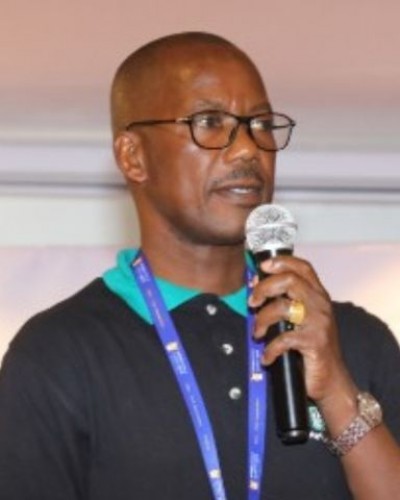
Albert Musando (MSc Environmental Science) has more than 20 years' work experience on matters of environmental sustainability, with expertise in ecosystems restoration, biodiversity conservation, ecosystems services and sustainability. As a senior leader, he drives conservation strategies, actions, and collaborations in private, county, and national government levels through Kenya, as well as at community levels. Through participation in stakeholder relations and lands committees, Albert leads implementation of Nature Policy while driving compliance to group environmental policies and for adequate financial provisions for all mine sites across the country. His challenging projects on limestone and shale quarries across the country see him plan and implement quarry rehabilitation, restoration and biodiversity conservation, transforming mine sites into ecosystems with sustainable economic activities. He manages the restored quarry ecosystems of Bamburi Haller Park, Bamburi Forest Trails and reserve-lands and quarries for sustainability.
Albert holds a Master’s degree in Environmental Science, Bachelor’s degree in Education and National Diploma in Tourism Management. He holds an International Professional Certification in monitoring and Assessment of Biodiversity (SI/MAB) from Smithsonian Conservation Biology Institute (USA); Advanced International Certificate in Integrated Sustainable Coastal Development (ISCD – from the University of Gothenburg, Sweden); Africa Sustainability Leadership from Strathmore University (Kenya) in collaboration with Cambridge University (South Africa).
Alem Cherinet

Alem Cherinet (BAs University of Calgary; MA University of Calgary) is the ERGP Senior Advisor for Strategic Development and International Affairs. A governance practitioner with nearly two decades in advising, project building, and organizational development, her work is distinguished by a commitment to strategy, interdisciplinary collaboration, and diplomatic expertise. Alem specializes in complex governance and conflict, identifying and leveraging critical problem-solving mechanisms. She is recognized for specialities in brokering, negotiation, and significant contributions to enhancing governance structures, achieving high-impact organizational outcomes. A Political Scientist with undergraduate degrees in International Relations and Latin American Studies, in resource governance Alem's work is international and focuses on policy, research, capacity-building, and leading cross-functional teams.
Alem is Chair of the School of Public Policy Engagement Committee, a member of the Canada-Mexico Chamber of Commerce (CANCHAM), an Affiliate of the Rethinking Latin American Studies from the South (RLASS) working group, a former resident of the University of Calgary Latin American Research Centre, and an organizational consultant.
Dr. Bev Dahlby

Dr. Bev Dahlby (PhD, London School of Economics), is a Professor of Economics, Distinguished Fellow, Research Director and the Director of the Tax and Economic Growth Program at The School of Public Policy, University of Calgary. He has served as a policy advisor to the federal and provincial governments in Canada on a range of fiscal policy issues, including the reform of business taxation, the fiscal equalization program, infrastructure grants, tax credits for television and film industry, taxation of inbound foreign direct investment, and saving non-renewable resource revenues. Dr. Dahlby has published extensively on tax policy and fiscal federalism. His international experience includes advisory work on tax reform for the IMF in Malawi, for the Thailand Development Research Institute, and for the World Bank in Brazil and Mexico. He served on Statistics Canada’s advisory council from 2005 to 2012 and as a member of the Jenkins Panel on federal support to research and development in 2010-2011. Currently, Dr. Dahlby was a member of Canada’s Ecofiscal Commission, and served as the Chair of British Colombia’s Commission on Tax Competitiveness, as well as the Blue Ribbon Panel on Alberta’s Finances.
Brad Hubbard
Brad Hubbard (BSc. in Engineering (Civil), University of Manitoba) has had a forty year career regulating Alberta’s oil and gas sector with the Energy Resources Conservation Board, Alberta Energy and Utilities Board and Alberta Energy Regulator (AER). His most recent positions include Lead, Training and Development, and Senior International Advisor in the AER’s International Centre of Regulatory Excellence (ICORE) Development Program. Mr. Hubbard’s past areas of work include regulatory operations; regulatory analysis and development of policy, requirements and processes; hearings and administrative tribunals; and stakeholder engagement. He has extensive experience in presenting on general hydrocarbon regulation, Alberta’s and Canada’s regulatory models, and other technical subjects to a wide range of audiences. He also developed and delivered the Canadian Energy Management and Regulation course at the Haskayne School of Business, University of Calgary, as well as developed and delivered multi-day workshops on Alberta’s energy regulation model for foreign regulators.
Brian Livingston

Mr. Livingston (Bach. Of Law, Toronto, B.Sc. (Eng), Queen’s University) served as vice-president, general counsel and corporate secretary of Imperial Oil Limited from 2002 until December 31, 2013. Prior to that he worked with Imperial Oil as Manager of Tax, in a number of Treasurers jobs (one with Imperial’s parent company of ExxonMobil), as a lawyer and as an engineer. He also worked in a two-year assignment with a policy group in the Energy Department of the government of Canada. Mr. Livingston’s academic background in engineering and law, plus his work experience, has given him a wide exposure to all aspects of the resource extraction industry. The areas include the negotiation of royalty rates with governments, the dealings with various regulatory agencies whose approval was needed to construct the project, the financial analysis and acquisition of large resource corporations, the negotiation of benefits and access agreements with First Nations, and the marketing of crude oil and natural gas. As corporate secretary, Mr. Livingston has experience in dealing with board of directors, including corporate governance matters (both Canadian and U.S), executive compensation and securities law matters affecting public companies.
Dan McFadyen

Mr. McFadyen (B.Sc. (Mechanical Engineering, Manitoba)) is a professional engineer with over three decades of experience in the public service and the energy sector. Following his tenure as Chairman of the Energy Resources Conservation Board (ERCB) from 2008 -2012, Mr. McFadyen joined The School as an Executive Fellow and served as the Director of the Extractive Resource Governance Program (ERGP) from 2013-2017. He has served as the Mexico Liaison for the ERGP as well as a contributor to the Mexico Energy Reform project. Prior to joining the ERCB, he was appointed Alberta Deputy Minister of Energy in January 2006 where he was responsible for a diverse resource development portfolio that included oil, oil sands, natural gas, petrochemicals, electricity, coal and minerals. Earlier, Mr. McFadyen has served as: Vice President, Regulatory Affairs and Public Policy with the Canadian Energy Pipeline Association (CEPA), Deputy Minister of Energy in Nova Scotia, key positions in the Saskatchewan Research Council, and the Saskatchewan Departments of Industry and Resources and Energy and Mines. Over his career, Mr. McFadyen has developed expertise in energy and mineral policy and planning including strategic planning, mineral tenure policy and practice; fiscal regimes; regulatory policy and practice; research and technology and energy related environmental issues such as climate change. Mr. McFadyen serves as an independent Director on the Board of Directors of Petroleum Technology Alliance Canada.
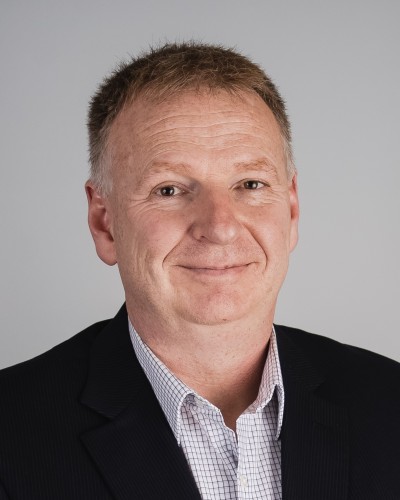
Dan serves the University of Calgary and School of Public Policy as Director of the Extractive Resource Governance Program, Centre for Regulatory Governance Policy, and as Scientific Director of the Financial Markets Regulation Program. Dan also is the Chair in Business Law and Regulation and an Assistant Professor in the Faculty of Law. Dan currently teaches in the areas of securities, corporate finance, corporate law and property law.
Dan returned to academia after an extensive career as a corporate lawyer, senior business executive and serial entrepreneur. Dan previously served as a law clerk to G.V. La Forest in the Supreme Court of Canada, an associate in a national law firm, a partner in a Calgary-based corporate law boutique, President of two junior public technology companies, an executive in a variety of multinational businesses, and co-founder of several start-up business ventures.
Dan has traveled more than 2.5 million miles to over 80 countries, and though now focused primarily on his teaching, research, and administrative obligations within academia, he continues to advise select start-up and growth-stage companies on business and legal issues. He is also the author of a variety of peer-reviewed articles in the area of financial regulation and of the annual reference text Alberta Annotated Securities Legislation published by Lexis/Nexis.
David Wentworth

David Wentworth (M.F.S., Yale University) has over thirty years of expertise in tax policy and retirement policy, including: business and individual taxation; tax regimes for extractive industries; taxation and regulation of financial institutions and products; international tax; consumption taxes; tax expenditures; property taxes; estate taxes; public and private pensions; and tax administration. He has worked for organizations such as the World Bank, the International Monetary Fund, and the United States Department of Treasury with broad experience assisting developing nations. Mr. Wentworth also has extensive leadership experience, including staff hiring and direction, budgeting, strategic planning, project management and evaluation, and representing organizations in public. He is an expert data analyst and computer programmer, with special emphasis on modeling and revenue estimating. He is also skilled at presenting clear and cogent analysis and technical results to both expert and general audiences, either orally or in writing.
Deborah Archibald
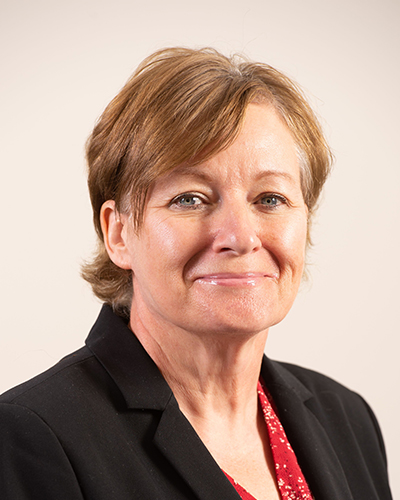
Deborah Archibald (H.Bsc., Geology), Lakehead University; Masters of Management Science, University of Waterloo), is the former Director of the Extractive Resource Government Program (ERGP) at The School of Public Policy, University of Calgary.
She has experience both as a government official and as a mining geologist, with background in both the technical and regulatory issues faced in the mining industry. As an Under-Secretary with a subnational government in Canada (i.e., the Northwest Territories), Ms. Archibald was responsible for establishing a legislative framework for the responsible and sustainable management of oil, gas, and mineral resources; for developing and implementing a Northwest Territories Mineral Development Strategy; oversight of the NWT Geological Survey and for initiating the development of the NWT Mineral Resources Act. This public sector experience is underpinned by her formal training as a geologist and ten years experience in the private sector as both a mineral exploration geologist and mine operations geologist. In April 2017, Ms. Archibald left the GNWT to establish her own consulting firm to provide strategic advice to all levels of government on the development of their mineral and petroleum resources.
Deborah remains an Executive Fellow of the School of Public Policy.

Freddy Cáceres (Bsc. Biological Sciences, Bachelor of Applied Technology in GIS, a MSc Energy and Environment, a Master’s in Safety and Work Risk Prevention, a Certificate in Integrated Management: Quality, Environment and Social Responsibility; and an Engineering degree in Environmental Management) is a biologist and professional engineer with over 25 years of experience working on environmental and social sustainability through the integration of environmental sciences, social responsibility, health & safety and cultural aspects in project and business management systems. He has been the founder and CEO of an environmental consulting firm and has 15 years of experience in ESIAs for energy, mining, infrastructure, water supply, sanitation, agriculture, urban and rural development, education and health sectors, including environmental impact assessment, management plans, OH&S, emergency preparedness, hazardous waste, and environmental monitoring and audit. He has relevant related experience in Canada, Ecuador, and other countries in Latin America and Africa. He has extensive work experience with the World Bank Environmental and Social Framework, particularly with Environmental and Social standards, based on the IFC ES Performance Standards.
George Eynon
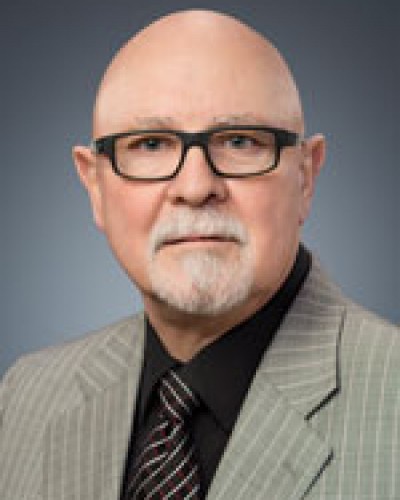
George Eynon (MSc, McMaster University) is a seasoned energy sector Executive and Board member, with 45 years’ professional experience in senior technical, research, management, executive and board roles. Mr. Eynon has broad experience with regulatory agencies, education and research institutes, training organizations, professional associations, consulting firms, and the complete range of major-, intermediate-, junior- and start-up oil & gas companies. Currently, he provides strategic, operational and regulatory advice, community and stakeholder engagement, and board and governance services. Mr. Eynon also provides energy literacy short courses to clients in industry and government. He serves as an elected Councillor with APEGA (the regulatory agency for the professions of engineering and geoscience in Alberta), and as a member of the Board of Directors of CSUR (Canadian Society for Unconventional Resources). Previously, 2008- 2013, he served as a Board member at the Energy Resources Conservation Board (ERCB), and latterly as a Hearing Commissioner with the Alberta Energy Regulator (AER). From 1996 to 2008 worked in energy and management consulting and research, variously with Cambridge Energy Research Associates, Ziff Energy, geos, and the Canadian Energy Research Institute, and as a Director of SMI Oil & Gas and Derek Oil. Mr. Eynon held various technical, managerial, and executive roles in the oil and gas industry from 1972 to 1996.
Dr. Jack Mintz

Dr. Jack Mintz (Ph.D., University of Essex) is the President’s Fellow of The School of Public Policy at the University of Calgary. He previously served as the Palmer Chair and Director for seven years. He has worked in energy and mining fiscal issues including consultation on resource tax reform with New Brunswick, Israel and the International Monetary Fund. Dr. Mintz presently serves on several boards including Imperial Oil Limited and Morneau Shepell as well as chairs the Social Sciences and Humanities Research Council. He is also appointed by the Federal Minister of Finance to the Economic Advisory Council to advise on economic planning. Dr. Mintz has consulted widely with the World Bank, the Organization for Economic Co-operation and Development, and various governments, businesses and non-profit organizations. He has also had an extensive academic career, having previously taught at Queens University Economics and the Rotman School of Management at the University of Toronto. Dr. Mintz served as President and CEO of the C. D. Howe Institute 1999-2006. Widely published in the field of public economics, he was touted in a 2004 UK magazine publication as one of the world’s most influential tax experts. He serves as an Associate Editor of International Tax and Public Finance and the Canadian Tax Journal, and is a research fellow of CESifo, Munich, Germany, and the Centre for Business Taxation Institute, Oxford University.
Dr. Jean-Francois Wen

Jean-Francois Wen (PhD, Queen's University) is a retired Professor of Economics and Research Fellow of the School of Public Policy at the University of Calgary. He also participated in the Harvard Kennedy School's Comparative Tax and Administration program. Dr. Wen is a frequent consultant for the World Bank, the International Monetary Fund, and the International Tax and Investment Center on tax policy issues and fiscal regimes for natural resources. He has coauthored reports on policy recommendations in Senegal (2015), Gabon (2012, 2014), Quebec (2014), Niger (2012), and served as an external reviewer of World Bank country reports on Business Taxation (2014). He has also delivered numerous workshops on Production Sharing Contracts for government officials in Kazakhstan and Azerbaijan and has undertaken the financial modeling of petroleum fiscal regimes for international oil companies operating in Africa. Dr. Wen has published numerous articles in academic journals of economics on the topics of tax policy, social insurance programs, and economic growth. He is a coauthor of the textbook, Public Finance in Canada, 5th edition (2016) and authored a report for the Ontario government on calculating appropriate royalty rates for water used in hydroelectricity production.
Jennifer Winter
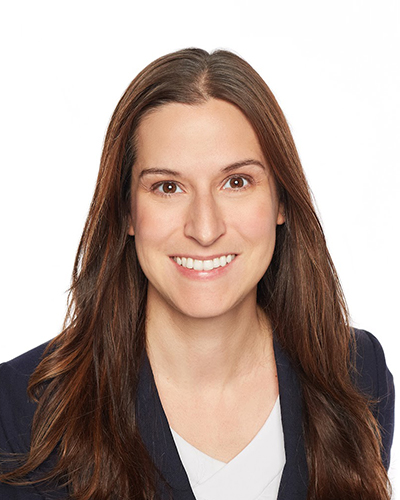
Jennifer Winter (PhD, Calgary) is an Assistant Professor and Scientific Director of the Energy and Environmental Policy research division at The School of Public Policy, University of Calgary. Her research focuses on the effects of government regulation and policy on energy development and the associated consequences and trade-offs. Current research projects are social impacts of hydraulic fracturing, comparing provincial emission-reduction policies, and federalism and climate policy. She has testified to the Senate of Canada on emissions pricing policies based on her work in this area, and has advised the Government of Alberta and Government of Canada in several capacities. Dr. Winter is actively engaged in increasing public understanding of energy and environmental policy issues; recognition of her efforts include a 2014 Young Women in Energy Award, being named one of Alberta Oil Magazine’s Top 35 Under 35 in 2016, and one of Avenue’s Calgary Top 40 Under 40 in 2017. Dr. Winter serves on the Future Leaders Board of Directors of the World Petroleum Council Canada and the advisory committee of the Alberta Narratives Project, and is a member of Global Affairs Canada’s Environmental Assessment Advisory Group.
John Carruthers
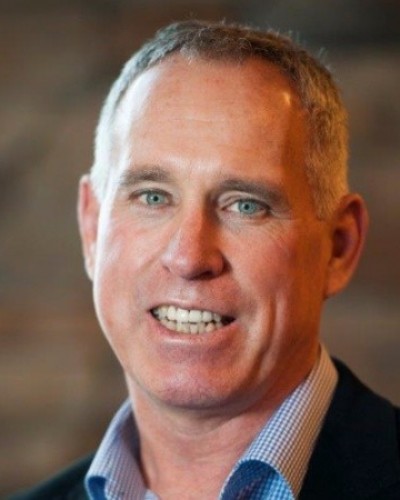
John Carruthers (BComm, University of Calgary) is an experienced energy industry President with extensive experience in business development, finance negotiation, commercial agreements, Indigenous partnerships, public & government affairs and regulatory approvals. He is an Executive Fellow at The School of Public Policy and provides advisory services in business development, commercial negotiations, government regulations, Indigenous partnerships, public & government affairs and team commitment. Previously, Mr. Carruthers was the President of Northern Gateway Pipeline at Enbridge, an $8 billion oil pipeline and marine terminal project. He has extensive experience in leading pipeline projects, including attaining regulatory approvals, First Nation participation, and land acquisition.

John P. Hayes (BA Hons.University of British Columbia; MA York University) is the ERGP Research Coordinator. He is currently a PhD candidate (ABD) in Political Science at McMaster University, specializing in comparative public policy and international relations. He is also a research affiliate of the Development Studies Department at the Universidad Autónoma de Zacatecas, México. John is a SSHRC Canada Graduate Scholar (2019-2022) and a recipient of the International Development Research Centre’s doctoral award (2020), which has supported his research on the Mexican mining industry. His doctoral thesis examines the multistakeholder dynamics of Mexican federal policy implementation related to natural resource governance in the democratic era (2000-present). His main policy areas of focus are fiscal governance, land and subsoil rights, and environmental regulation.
John McCarthy

John McCarthy (B. Eng. (Mechanical), Carleton University; MBA, University of Calgary) is a professional engineer and president of Sustained Balance Consulting, specializing in regulatory compliance issues and integrated management systems. Mr. McCarthy worked for over thirty years with the National Energy Board in a variety of technical and leadership roles related to Engineering, Safety, Environment, Economics, Strategy and Regulatory Development. After retirement, John Joined the ATCO Group (an integrated energy company) for five years as a Senior Advisor and Director of Health Safety and Environment, Quality and Regulatory. John served as Director on a northern natural gas distribution company and currently serves as a Board Member of the Alberta Land Surface Rights Board and Land Compensation Board addressing disputes related to land use and energy development.
Dr. Kent Fellows

Dr. G. Kent Fellows (PhD) is a research associate at The School of Public Policy, University of Calgary. He has previously worked as a researcher for the University of Alberta’s School of Public Health and as an intern at the National Energy Board. Dr. Fellows has published articles on the effects of price regulation and bargaining power on the Canadian pipeline and pharmaceutical industries as well as the integration of renewable generation capacity in the Alberta electricity market. His current research agenda focuses on the area of computational economics as applied to the construction and use of large-scale quantitative models of inter-sector and interprovincial trade within Canada. Dr. Fellows is also involved in forwarding The School of Public Policy’s Canadian Northern Corridor research program, which is aimed at studying the concept of a multi-modal linear infrastructure right of way through Canada’s North and near North. Other research fields include applied economics, public finance, regulatory economics, financial economics, public policy, industrial organization, and energy and environmental economics.
Leonardo Beltran
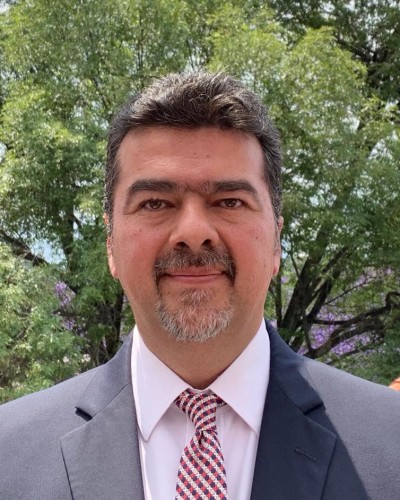
Leonardo Beltran (MA, Harvard) is an Executive Fellow of the School of Public Policy's Extractive Resource Governance Program at the University of Calgary, as well as a Distinguished Visiting Fellow at Columbia University´s Center for Global Energy Policy, and a non-resident fellow at the Institute of the Americas. He is also serving his second term on the Board of Sustainable Energy for All, and was elected as an expert to Panama´s National Council of Energy Transition.
Mr. Beltran had a distinguished 13-year career in public service in the government of Mexico, including as the longest serving Deputy Secretary of Energy (2012-2018). In this capacity, he led Mexico´s National Energy Strategy, policy document that served as the foundation for the energy reform of 2013. He was member of the Board of Petróleos Mexicanos (Pemex), Mexico´s national oil company and the world´s 10th largest oil producer and alternate Chairman of the Board of Comisión Federal de Electricidad (CFE), Mexico´s national power utility and a Global 500 company. Mr. Beltran also chaired the boards of the national laboratories of the energy sector (Mexican Petroleum Institute; National Institute of Electricity and Clean Energies; National Nuclear Research Institute), and the board of a billion usd R&D trust funds that created the Mexican Centers for Innovation on Energy (biofuels, CCS, geothermal, ocean, solar, and wind), the largest clean energy technology innovation networks in Latin America. Mr. Beltran held other leadership positions in government, including Director-General for Information and Energy Studies and Director for International Negotiations.
Mr. Beltran is also a member of the Advisory Board of the Just Transition Initiative (partnership between the Climate Investment Funds and the Center for Strategic and International Studies); member of the Board of Fundación Por México (NGO focused on providing educational services to underserved communities); member of the IPS International Association (global news agency); expert and member of Energy, Materials and Infrastructure Platform of the World Economic Forum; member of Consejo Mexicano de Asuntos Internacionales; and a mentor of the Global Women´s Network for the Energy Transition. He is also consulting the World Bank on energy transition topics.
Martha Hall Findlay
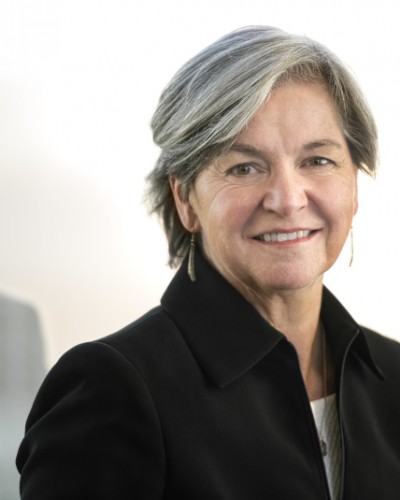
Martha Hall Findlay, BA (International Relations), LLB, ICD.D is the School of Public Policy’s Director and James S. and Barbara A. Palmer Chair in Public Policy, marking her return to the institution where she previously served as an Executive Fellow during its early years. She played a key role in the development of the Oil Sands Pathways to Net Zero by 2050 initiative during her tenure as Chief Sustainability and Chief Climate Officer for Suncor Energy. Her contributions extend to various advisory roles and board memberships in significant policy, environmental, and cultural organizations. With a diverse background that includes leadership at the Canada West Foundation and a political career as a twice-elected Member of Parliament, Martha is recognized as a thought leader in national media and a notable figure in Canadian public policy.
Matthew Foss
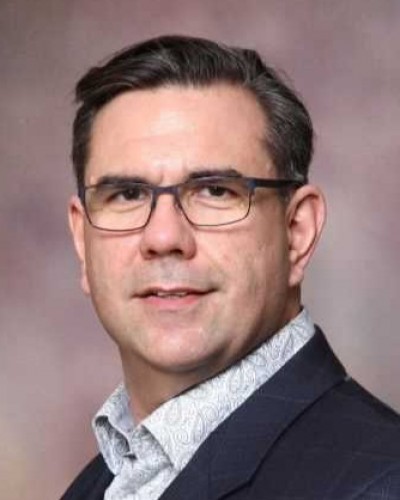
Matthew Foss (M.A. Economics, University of Calgary) has 20 years of experience in the Canadian energy industry. He recently served as the Chief Energy Economist for the Alberta Government where he was responsible for assessing the value of Alberta's energy resources, designing Alberta’s oil and gas royalty formulas, programs, features and incentives, forecasting oil and natural gas prices and energy revenues, and advising Alberta on energy markets and related policies and strategies. In his career with the Alberta Government, Mr. Foss has led teams responsible for advising on market access, energy investment competitiveness, petrochemicals and refining policies, pipeline tolling and other regulatory matters, and the design and evaluation of royalty and fiscal frameworks. He has frequently provided presentations to international delegations and at international conferences. Before joining the Government, Mr. Foss worked for several years as an energy economist with the Canadian Energy Research Institute where he was responsible for price forecasting and studies related to energy supply and demand. Mr. Foss has also taught natural gas related economics courses at the University of Calgary.
Dr. Michal Moore
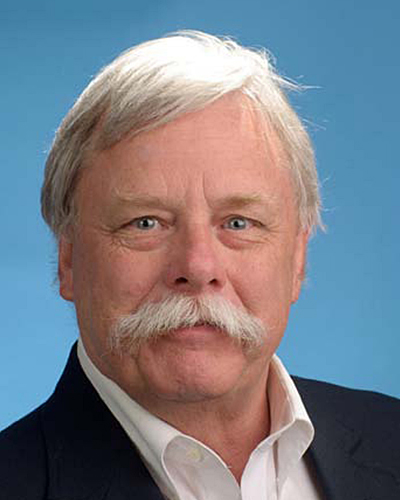
Dr. Michal Moore (Ph.D. Economics, University of Cambridge) is a Distinguished Fellow at The School of Public Policy, visiting scholar and research associate at Cornell University and Senior Fellow at the Institute for Sustainable Energy, Environment and Economy. He teaches courses on energy markets and policy, carbon valuation and policy, and regulation. He was formerly the Chief Economist at National Renewable Energy Lab at Golden, Colorado and regulatory commissioner with the California Energy Commission. Dr. Moore specializes in research on cross-border regulatory issues affecting the energy industry.
Dr. Pablo Policzer

Pablo Policzer (PhD, Massachusetts Institute of Technology) is an Associate Professor of Political Science at the University of Calgary. He specializes in comparative politics, with a focus on Latin America. His research has examined the evolution of violent conflict - especially among armed actors such as militaries, police forces, and non-state armed groups - in authoritarian and democratic regimes. In recent years he has focused on the possibilities of collaborative governance in extractive industry areas, especially involving Indigenous communities, and through a complex systems lens. He will teach a new course on Complex Governance, to be offered through the Department of Political Science. He previously held the Canada Research Chair in Latin American Politics (2005-2015), and was the Director of the University of Calgary's Latin American Research Centre (2015-2021).
Paul Precht
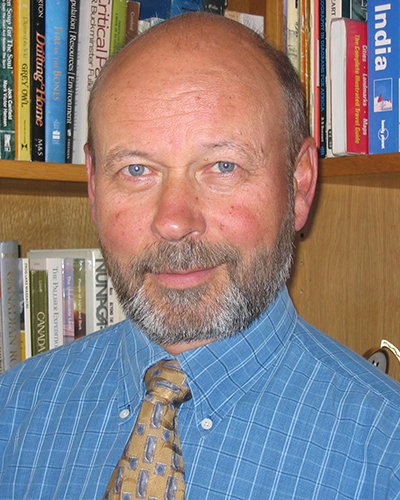
Paul Precht (M.A. Economics, University of Alberta) worked in the Treasury Department and Environment Department of the Government of Alberta before joining the Alberta Department of Energy where he worked in a variety of roles for over 23 years -- as an economic analyst and an executive. He was responsible for forecasting and analysis of a wide range of projects and policy issues in the energy sector, which took place during periods of turmoil in world oil markets and major political shifts from a highly regulated to a more market-oriented energy sector in Canada. Mr. Precht spent two years in Tanzania under a secondment to Petro-Canada International Assistance Corporation, to serve as Economic Advisor to the national oil company and the Minister of Energy in Tanzania. In May 2000, he formed a private consultancy providing training, analysis and advice on energy markets, energy policies, royalty and fiscal structures and regulatory frameworks to public sector and private sector clients in Canada and internationally. He has worked throughout Canada from coast to coast to coast, as well as in Africa, Latin America and Asia. His clients have included the World Bank, the International Monetary Fund, the African Development Bank and the Commonwealth Secretariat. Mr. Precht is a member of the International Association for Energy Economics, the Association of International Petroleum Negotiators and is Past-President of the Economics Society of Northern Alberta.
Richard Masson
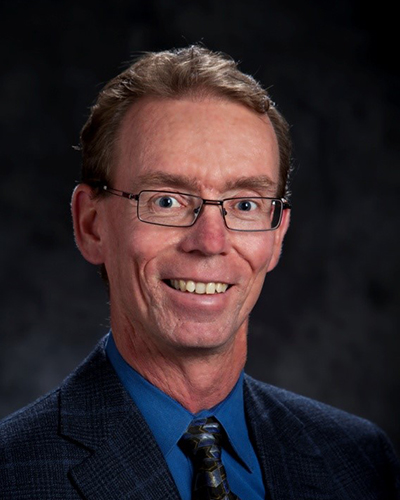
Richard Masson (MBA, Queen’s University, and CFA) is an Executive Fellow of The School of Public Policy, University of Calgary, and brings over 30 years of leadership experience in energy project development and governance, energy marketing, and finance. In addition, as Chief Commercial Officer for Fractal Systems., he is leading the commercial implementation of an advanced technology which lower costs and GHGs for bitumen producers, while freeing up export pipeline capacity. He is known as a trusted advisor and effective communicator within the Calgary Energy community and is a sought after as a commentator on energy matters. Mr. Masson previously led Alberta’s domestic and international commercial activities to improve crude oil infrastructure and markets access at the Alberta Petroleum Marketing Commission. He also was the Director of Oil Sands Policy and Development at the Alberta Energy Department. Mr. Masson is Vice-Chair of the Board of Governors of the University of Lethbridge, Audit Committee Chair and a member of its Executive, Finance, and Compensation Committees. He is also a First Vice-Chair of the World Petroleum Council-Canada and an Advisory Board member for Iridium Risk Management. He was previously board member of the China-Alberta Petroleum Center and board member and Audit Committee Chair for the Calgary Regional Community Board for Persons with Developmental Disabilities.
Dr. Robert Mansell

Dr. Robert Mansell (Ph.D., University of Alberta) is Founding Director of the Institute for Sustainable Energy, Environment and Economy and former Dean of Graduate Studies and Head of Economics at the University of Calgary. He has authored many studies on energy and regulatory issues and on regional economics. Examples include publications on traditional and incentive regulation; tolling alternatives for pipelines; the economic impacts of energy and related projects; fiscal transfers, policy and restructuring; and changes and challenges in the Alberta economy. Dr. Mansell is qualified as an expert witness before many energy and utility regulatory bodies. In addition to serving on a large number of University of Calgary committees, councils and task forces, he has provided extensive service on a variety of external committees and boards. Recent examples include service on the Energy Strategy Advisory Committee for the Government of Alberta; as an advisor to the Government of Canada on the Mackenzie Gas Pipeline Project; on the Canadian Academy of Engineering Energy Pathways Taskforce; and on the Council of Canadian Academies Study on Hydrates. Dr. Mansell also serves on the Boards of Directors of the Alberta Chamber of Resources, Alberta Innovates – Energy and Environment Solutions, the Canadian Energy Research Institute, the Alberta Ingenuity Centre for In Situ Energy, and the Climate Change and Emissions Management Corporation.
Robert Skinner

Dr. Robert Skinner (Ph.D. Geology, University of Washington) is an Executive Fellow of The School of Public Policy and Energy Research Adviser to the VP Research at the University of Calgary. He has over four decades of experience in government, industry, and academia. He has authored numerous papers, reports and articles on energy and environment, energy policy and market regulation. His broad expertise covers national and international energy policy, geopolitics, research strategy and organizational structure, business development, project analysis and risk assessment. He held senior energy policy positions in the Canadian government, including as Assistant Deputy Minister responsible for policy advice on all energy commodities, alternative transport fuels and nuclear energy. His international experience stems from his term as Director of the Policy Office of the International Energy Agency at the OECD in Paris, where he led the Agency’s analysis on energy and climate change, and reviews of member countries’ energy policies. He also led teams to provide structural and energy policy advice for economies in transition in eastern Europe and for South Africa. His industry experience was with TOTAL and Statoil, including establishing their offices and business development in the Alberta oil sands. He is a Distinguished Fellow and former Director of the Oxford Institute for Energy Studies.
Roberto Lozano
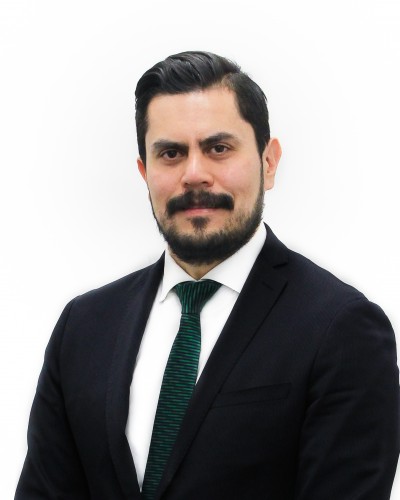
Roberto Lozano (MSc, University of Liverpool) is a Senior Specialist in the design and implementation of public policies and international cooperative projects in the energy sector. He has extensive knowledge across the value chain of the sector, having devoted his more than 18-year career entirely to energy matters. At Mexico's Electricity Independent System and Market Operator, he founded its Institutional Affairs Unit, which he leads since 2016 to address the organization's international and governmental affairs. Prior to this tenure, he was a Senior Researcher at the Tokyo-based energy think tank serving the 21 member economies of APEC, where he provided advice on how to enhance regional cooperation on common energy challenges that included the development of natural gas trade and production in the form of LNG and unconventional (shale) gas. Previously, he worked at Mexico’s Energy Ministry and Petroleum Institute, where he participated in milestone energy planning initiatives that included the preparation of the first Strategy on Energy Transition, the executive energy reports submitted by the Mexican President and Energy Minister to Congress every year, as well as several editions of the official energy outlook publications on natural gas, LPG, petroleum by-products and electricity.
Mr. Lozano is a regular reviewer of international flagship publications and journals in the energy field. As a subject-matter expert, he has also participated in several energy-oriented initiatives led by foreign governments, international organizations, and think tanks. His academic production, which has appeared in institutional publications, specialized books, and peer-reviewed journals, centers on policy proposals and governance mechanisms to accelerate energy transition and improve energy development projects. He is a holder of the Project Management Professional (PMP), Professional in Business Analysis (PBA) and Disciplined Agile Scrum Master (DASM) international certifications granted by the Project Management Institute.
Sherry Lovely

As the principal consultant for Fireweed Coaching and Consulting, Sherry’s value as a senior consultant has been developed with 25 years related experience working with senior government officials with the Government of the Northwest Territories (GNWT) and the Mackenzie Valley Impact Review Board (MVEIRB) in Yellowknife NT. She holds a BA in Social and Cultural Anthropology from the University of Calgary (2001) with an honors study of the archaeological impacts of the cultural and wellbeing of Dene communities and their land along the proposed Mackenzie Gas Project. Sherry has provided expert research and advice on cultural and socio-economic relationships and regulatory areas on behalf of the people of the NWT. As an advisor to Deputy Ministers/Industry negotiation teams, she provided recommendations to the Deputy Ministers related to education, cultural, health and community wellness impacts for the DeBeers Snap Lake and proposed Mackenzie Vally gas pipeline Socio-Economic Agreements.
Due to her extensive knowledge and experience in these areas Sherry was often called upon for her expertise. She has continued to provide ongoing recommendations for the GNWT for the social and cultural wellbeing of NWT residents through an extensive review of the GNWT Project (Environmental) Assessment Function for the Deputy Ministers Project Assessment Senior Management Coordinating Committee with respect to its policy, activities, and relevant legislation. Sherry was also invited to provide oversight and contributions to the MVEIRB Socio-economic Impact Assessment Guidelines.
Wes Funk

Wes Funk (B.Comm., B.Sc. (Hon), M.E.Des is the founder and principal of DXD Consulting Inc. He has over 25 years of experience providing advisory services to private and public sector clients around the world. He has led the development of several regional and global-scaled enterprises focusing on decision analysis, risk management and sustainability strategy and policy creation. He has worked extensively in the mining sector including the Canadian International Development Agency (CIDA) and the World Bank in Zambia’s copper district. Green House gas (GHG) management and climate change strategies and scenario analyses are core elements of Mr. Funk’s environmental and social governance (ESG) related engagements in mining, energy and infrastructure. He led the development of pioneering research in methane emissions management in Canada’s energy sector for the Petroleum Technology Alliance of Canada (PTAC). GHG’s have been incorporated in client life cycle assessments deployed across the mining and energy sectors – in aid of portfolio management, capital planning and permitting and approvals applications.
Dr. ‘Lyn Anglin
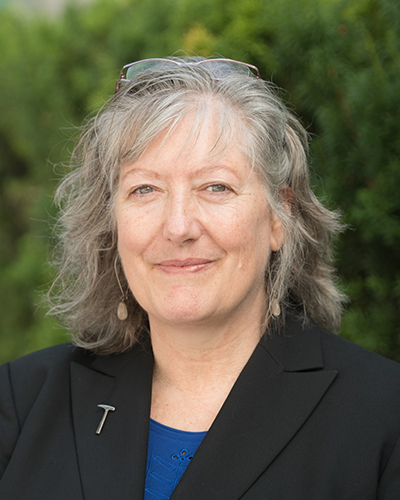
Dr. ‘Lyn Anglin (Ph.D. Geological Sciences, Carleton University) is an experienced professional geoscientist with proven leadership skills, and a strong background in research management, communication, and government relations. She has enjoyed an influential 35-year career in geoscience research, research management and research policy, primarily related to mineral deposits, geochemistry, mineral exploration, and mine remediation. She was Chief Scientific Officer at Imperial Metals, a Vancouver–based mining company, from Sept 2014 to Dec 2018 and prior to that she was inaugural President and CEO of Geoscience BC (GBC), a non-profit geoscience research organization focused on attracting resource development investment to B.C. Before joining GBC, ‘Lyn has spent almost 20 years with the Federal Government, as a Research Scientist and a Subdivision Head in the Mineral Deposits Division, and as Associate Director of the Pacific Division, of the Geological Survey of Canada. She also spent three years as a Science Advisor and Policy Coordinator with the SR&ED Investment Tax Credit Program in Revenue Canada. Lyn’s accomplishments have been formally recognized by her peers.
